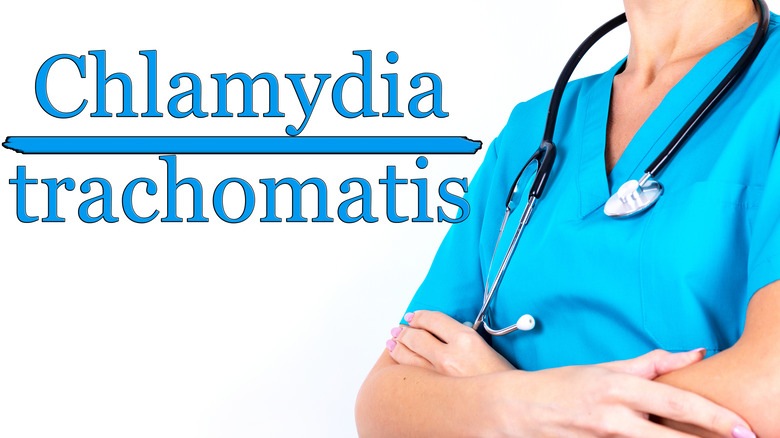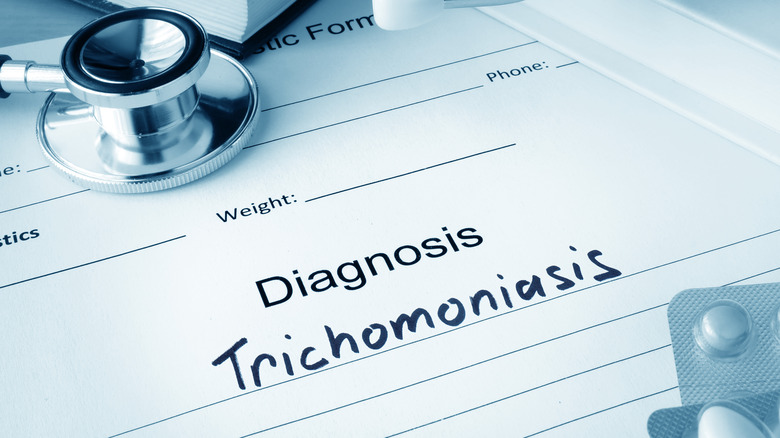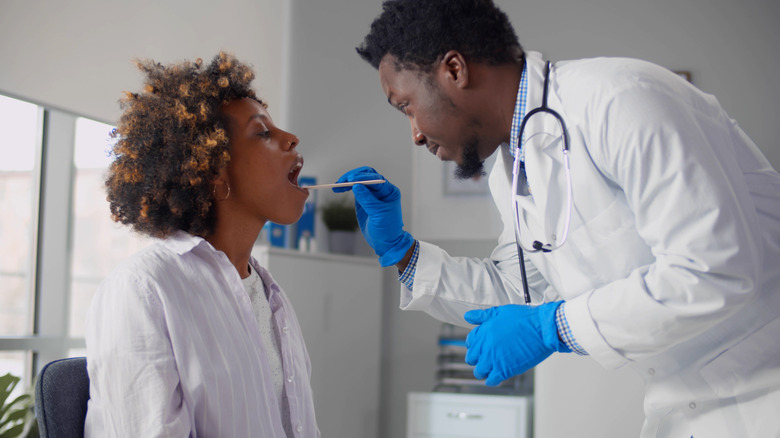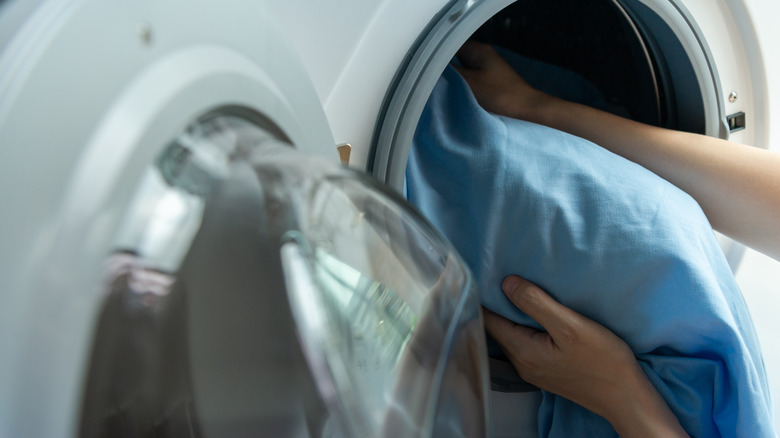Everything You Should Know About STDs
For centuries, people have contracted various forms of sexually transmitted diseases (STDs). STDs are transmitted to sexual partners through vaginal, oral, or anal sex, as well as from skin-to-skin contact. Most STDs require medical attention and treatment. One of the problems with STDs is that you may not even know you have one and, therefore, may transmit the disease to someone else. If you have new or multiple sexual partners, the disease can keep spreading.
According to the Centers for Disease Control and Prevention (CDC), STDs are on the rise. In 2019, 2.5 million new cases were reported by sexually active people. "Less than 20 years ago," Raul Romaguera, acting director for the CDCs Division of STD Prevention, explained, "gonorrhea rates in the U.S. were at historic lows, syphilis was close to elimination, and advances in chlamydia diagnostics made it easier to detect infections." However, he continued, saying, "That progress has since unraveled, and our STD defenses are down. We must prioritize and focus our efforts to regain this lost ground and control the spread of STDs."
For your health and the health of your sexual partner or partners, consider taking the time to learn more about STDs.
Chlamydia is one of the most common STDs
Chlamydia is one of the most commonly transmitted STDs, according to the Centers for Disease Control and Prevention. Both men and women can get chlamydia with or without symptoms. This highly contagious sexually transmitted disease comes from bacteria called Chlamydia trachomatis.
You can get chlamydia through vaginal, oral, anal sex, or from just skin-to-skin contact. Women who are pregnant can pass the chlamydia bacteria to their unborn babies, potentially causing the newborn to have pneumonia or eye infections. If undetected or untreated, chlamydia can cause harm to a woman's reproductive system that may prevent them from getting pregnant.
While many people don't have signs or symptoms of chlamydia, they should seek medical help if they experience burning when urinating, unusual genital discharge, or pain during intercourse. See your doctor as soon as possible if you think you may have chlamydia, as it's curable. Because chlamydia comes from bacteria, taking the right type of antibiotics can eliminate the bacteria from your system. Make sure that your sexual partner also gets tested and treated to prevent further spreading of chlamydia.
You could have genital herpes and not know it
Genital herpes can cause serious pain, itching, and lesions. The genital herpes virus is transmitted through sexual intercourse, and after the initial infection, it lies dormant in your body. Periodically, the symptoms may reappear on your genital area. In some cases, however, an infected person may have no symptoms or signs. This doesn't mean that you can't spread genital herpes — it just means you're not displaying any symptoms (via Mayo Clinic).
Pregnant women that carry genital herpes run the risk of illness for their babies including seizures, viral meningitis, organ damage, blindness or deafness, and open sores on the eyes or genitals. According to Dr. Robyn Horsager-Boehrer, chief of obstetrics and gynecology at UT Southwestern Medical Center, "Tell your doctor if you or your partner have herpes or if you may have been exposed. By knowing, we can take extra precautions to reduce your baby's risk of infection during delivery and in their first few weeks at home".
There is no cure for genital herpes, once you have it you carry the virus forever. However, there are medicines to help manage the unpleasant symptoms (via Cleveland Clinic).
Trichomoniasis comes from a one-celled parasite
Trichomoniasis, another common sexually transmitted disease, comes from a one-celled parasite, Trichomonas vaginalis, unlike syphilis which comes from bacteria or herpes which comes from a virus. Some people who have trichomoniasis, often called trich, don't know they have it as the disease may not present symptoms.
According to WebMD, women with trich may experience odorous vaginal discharge that's sometimes greenish in color; itching, swelling, and redness around the genitals; pain with sexual intercourse or urination; or the frequent need to urinate. Men may notice discharge or itching inside of the penis.
Trich is very contagious and easy to transmit. According to Planned Parenthood, the parasite is spread through vaginal or oral sex, sharing sex toys with someone who's infected, or by touching someone who's infected and then touching your genitals. Treatment for trichomoniasis includes anti-parasitic medications like Flagyl, Noritate, and Nuvessa. As with other STDs, your partner should also receive treatment to stop the spread of trichomoniasis.
Gonorrhea can grow inside your mouth and eyes
Gonorrhea is one of the oldest known STDs, according to a study published in the Journal of Skin and Sexually Transmitted Diseases. Hippocrates reportedly noted symptoms that resemble gonorrhea as far back as around 400 BC.
Caused by the bacteria Neisseria gonorrhoeae, gonorrhea is treatable with antibiotics and, until recently, was quite rare in modern times. Unfortunately, today we are seeing antibiotic-resistant forms of gonorrhea, causing an increase of this STD (via National Institute of Allergy and Infectious Disease). Gonorrhea can infect the vagina, penis, anus, throat, and sometimes, the eyes. Symptoms and signs of gonorrhea include pain when urinating, discharge from the penis or vagina, itching in and around the rectum, and discharge from the eyes (via Healthline).
This STD affects men and women differently as women can also get the infection in the cervix, and men can have swelling in their testicles, according to the Mayo Clinic. As with any STD, seek treatment as soon as possible and have your sexual partner treated as well.
HIV is a global health issue
In a study by the World Health Organization, human immunodeficiency virus (HIV) has killed over 36 million people worldwide. At the end of 2020, nearly 40 million people globally live with HIV.
This sexually transmitted virus weakens people's immune system which lowers their defenses against a variety of infections and diseases. As the virus continues to weaken the immune system, the body loses its ability to fight other viruses and diseases including cancer. If left untreated, HIV advances to acquired immunodeficiency syndrome (AIDS).
During the initial stages of HIV, people experience flu-like symptoms. As HIV progresses, people begin to get sore throats, swollen lymph nodes, a deep cough, fever, and weight loss. For the latter stages of HIV, infected persons can get tuberculosis and cancers like Kaposi's sarcoma.
HIV is preventable with the use of condoms and by practicing safe sex. Although incurable, treatment is available for people living with HIV and AIDS, including specialized antiretroviral (ARV) drugs and antiretroviral therapy (ART).
Genital warts can cause bumps in and around your genitals
Genital warts cause bumps and growths that often resemble a cauliflower around the vagina, penis, or anus (via Cleveland Clinic). Sometimes, genital warts are so small they're unnoticeable. However, when the warts are large and noticeable, most people experience itching and burning where the warts are.
According to the Clinic, the warts grow as a result of getting infected by the STD, human papillomavirus (HPV). Sharing sex toys, or having vaginal, anal, and oral sex can spread genital warts. Genital warts may not appear until months after being infected with HPV and can last for months or years.
Treatment for genital warts includes topical medicines like Aldara, Condylox, or trichloroacetic acid. With severe cases of genital warts, the infected person may need surgery to remove them. According to WebMD, surgery techniques for the removal of genital warts include cutting off the warts from the affected parts of the body, using a freezing treatment, burning the warts via electrocautery, and laser procedures.
Please note that you should not use over-the-counter wart removal medicines to get rid of genital warts.
Syphilis can develop into several stages
Syphilis, which is caused by the bacterium Treponema pallidum, has infected people for centuries. Authors such as Sir Arthur Conan Doyle had characters with signs and symptoms of this STD in many of his stories, according to the American Society for Microbiology. Additionally, in 1400, the Italian poet Antonio Camelli wrote about the disease, an article published in the Journal of Infectious Diseases & Preventive Medicine outlined.
In 1909, Paul Ehrlich, a German biochemist discovered that certain chemical substances could cure syphilis. As a result, doctors began to use "antitoxins" to kill the syphilis bacteria, and rates of infection declined worldwide. However, according to the American Society for Microbiology, funding for the Centers for Disease Control and Prevention's eradication of syphilis ceased in 2013. Whether as a result or due to other factors, syphilis cases have begun rising globally since then, including in countries with advanced medical care.
Syphilis advances in stages — primary, secondary, early latent, late latent, and tertiary latent — if left untreated. Symptoms vary throughout the stages, but key symptoms include open sores around the genitals, skin rashes on the palms of the hands and the soles of the feet, neurological disorders, cardiovascular disease, meningitis, and deteriorating mental status.
Penicillin can cure syphilis, especially if caught in the early stages of the infection (via PAHO). Pregnant women should get tested for syphilis, as the mother can transfer the bacteria to her baby.
Human papillomavirus (HPV) can lead to genital warts
Human papillomavirus (HPV) is a viral STD that often has no symptoms in infected people. However, for some men and women, HPV can lead to genital warts. According to Medical News Today, HPV is incurable but preventable with safe sex practices. The Centers for Disease Control and Prevention explains that HPV will often go away naturally after about two years from the time of infection. If a woman carrying HPV has a weakened immune system, HPV may lead to cervical cancer (via the National Cancer Institute).
HPV is a very common STD. According to Planned Parenthood, most people who have unprotected sex will at some time get HPV. Some will get genital warts, and others won't even know they have this viral STD. People spread HPV through vaginal, oral, anal sex, or through skin-to-skin contact with an infected person. An HPV vaccine can help prevent getting infected. As always, you should practice safe sex to prevent getting HPV and other STDs.
Pubic lice are sometimes called crabs
Pubic lice are little insects that look like crabs and thus, the infestation of pubic lice is often referred to as "crabs." Pubic lice, different from head lice found on your scalp, live in the pubic hair around your genitals. They sometimes show up in coarse hair in your armpits, eyelashes, eyebrows, and arm hair.
You can get pubic lice when you have sex with someone who has them. In addition, you can also get pubic lice from bedding, shared towels, or clothing of a person who has the lice, according to the Associates for Women's Medicine.
The lice feed on blood, and the resulting bites cause itching. A person with pubic lice may end up scratching the bites raw, which can lead to an infection. If the lice take up residence in your eyebrows, you may end up with an eye infection or pink eye. You can treat pubic lice with special over-the-counter shampoo or gel that helps to kill the insect. The CDC advises, "Persons should avoid sexual contact with their sex partner(s) until both they and their partners have been successfully treated and reevaluated to rule out persistent infestation."
Molluscum contagiosum isn't always an STD
According to the Mayo Clinic, the viral infection molluscum contagiosum causes bumps and lesions on the skin. You can get molluscum contagiosum through sexual activity, skin-to-skin contact, or by sharing infected clothing or bedding. It is considered a sexually transmitted disease when it is contacted through sexual activity (via UC San Diego).
Symptoms of molluscum contagiosum include raised bumps that often have a little indentation on them. These bumps vary in size and are normally painless. However, if you scratch the bumps, they can become infected.
Complications from molluscum contagiosum include infection of the bumps, conjunctivitis if the bumps develop on the eyelids, scarring from scratching the bumps, and secondary eczema. For people with weakened immune systems, the risk of developing molluscum contagiosum increases. If you have a strong and healthy immune system, the bumps caused by molluscum contagiosum generally go away on their own. If they don't disappear, a doctor can prescribe topical medication that will eliminate the bumps or lesions (via Healthline).
Oral herpes can cause lesions on your lips and mouth
There are two types of herpes simplex: HSV-1 and HSV-2. Both types can be passed through sexual activity can thus be considered sexually transmitted diseases (via eMedicine Health). You can get both versions of herpes around your genitals or around your lips and mouth. However, if only the lips and mouth have the lesions caused by either herpes simplex virus, you have oral herpes.
Oral herpes spreads from one infected person to the other through oral sex, kissing, or skin-to-skin contact. A person gets genital herpes through vaginal or anal sex as well as from skin-to-skin contact. Someone can get oral herpes just by touching the open sore on the infected person's mouth and then touching themselves.
According to Johns Hopkins Medicine, at least half of adults in the United States have oral herpes — they just may not know they have it. Signs and symptoms of oral herpes include open sores on the lips and around the mouth, flu-like symptoms, and swollen lymph nodes. An infected person can apply prescription topical antiviral ointments to help reduce the duration of the open sores. In addition, using topical anesthetics can help ease the pain associated with oral herpes.
STDs can affect pregnancies
A pregnant woman can transfer STDs like HIV and syphilis to the baby while it's still in the womb. A woman with certain STDs, like chlamydia or genital herpes, can also pass the infection during delivery. STDs can cause health issues for new babies, such as eye infections, deafness, meningitis, or damage to their organs (via Delaware.gov). Certain STDs such as herpes simplex, HPV, syphilis, and chlamydia can also affect the fertility of women. For instance, chlamydia infections can cause pelvic inflammatory disease, which affects various parts of the woman's reproductive system that may lead to infertility according to Healthline.
A pregnant woman should have STD screening early in their pregnancy so their obstetrician can treat the infection early in the pregnancy. Pregnant women with bacterial STD infections like trichomoniasis and gonorrheas are able to be treated with antibiotics. The Centers for Disease Control and Prevention explains that your doctor will prescribe a safe amount for both you and your unborn baby.
Viral STDs such as herpes or HIV are not curable, but antiviral medicine can help reduce the symptoms. Taking antiviral medicine can lower the risk of the mother passing serious symptoms to her new baby. According to the Office on Women's Health, a new mother can breastfeed her baby unless she has HIV or open sores caused by herpes or syphilis.
Using protection and getting tested can help reduce STDs
Condoms can help reduce the likelihood of getting STDs when engaged in vaginal or anal sex (via CDC). Dental dams can help reduce the transmission of STDs during oral sex. However, several types of sexually transmitted diseases can transfer from one person to another through kissing, touching, or skin-to-skin contact.
One of the key ways to prevent the spread of STDs is through regular STD testing. "As long as you're sexually active, you should be tested for STDs at least once a year," OB-GYN Care in Texas advised. "If you have more than one partner, share intravenous (IV) needles, or don't always practice safer sex by using a condom each time you have intercourse, you should be tested every three to six months."
STD testing can take on many forms. A doctor may take a swab or ask for a urine sample to check for bacterial infections. Viral STDs may require a blood test along with visual inspection for signs of the infection. For the best results, get an STD test from your doctor as opposed to taking an in-home test that may give false results (via UAB Medicine).
You can live a healthy life after or with an STD
If you have an STD, you shouldn't feel ashamed. Lots of people have them or have had them. "There is a stigma around any STD, and it trickles down to anyone diagnosed with [an STD]," New York-based psychologist Lindsay Henderson told Everyday Health. "People feel ashamed, that they are somehow damaged and that no one will want them in the future."
Being honest with your sexual partner about your STD can help relieve the feeling of guilt or shame. Doctors can treat most STDs and, for ones that have no cure, like HIV, medicine can help you manage the disease.
You can also still get pregnant if you've had an STD or even have one during the gestation period. You just need to manage the disease and stay under your doctor's care. If you have an incurable STD, consider joining a support group, getting counseling, or therapy. There's no shame in finding help and healing after having a sexually transmitted disease.















